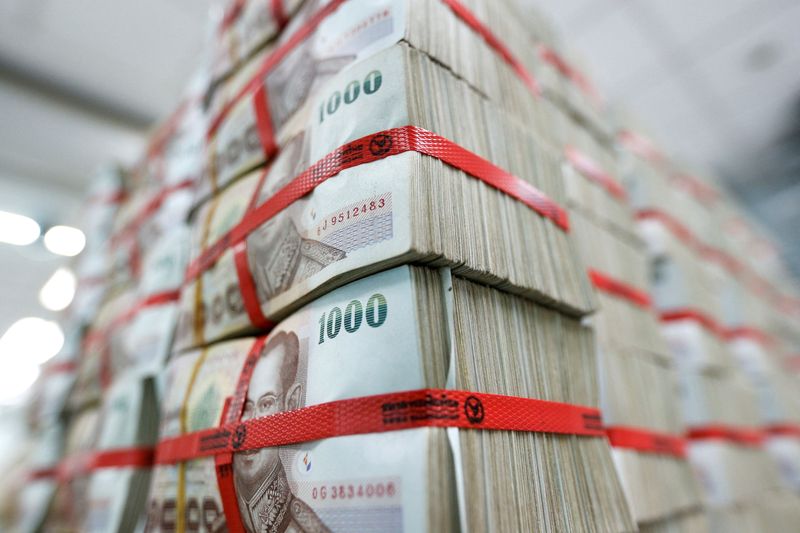Investors do not believe in the dollar and look at developing markets
2022.12.06 01:44
[ad_1]

Investors do not believe in the dollar and look at developing markets
Budrigannews.com – Some investors are betting that a sustained reversal in the greenback will benefit emerging market currencies greatly as the US dollar falls from multi-decade highs.
As expectations that the Federal Reserve will soon slow the pace of its interest rate hikes bolstered the case for investors betting on emerging market currencies, the MSCI International Emerging Market Currency Index recorded its best monthly gain in approximately seven years in November, rising nearly 5% from its lows.
The dollar’s 8 percent fall from its September highs against a basket of developed market currencies is indicative of a wider shift in sentiment. According to Reuters calculations based on data from the U.S. Commodity Futures Trading Commission, speculative traders switched to a net short position on the U.S. dollar for the first time in 16 months in the November futures markets.
Amundi US director of fixed income and currency strategy Paresh Upadhyaya stated, “The planets are lining up for a dollar bear market.”
MSCI’s index of emerging market currencies is down 5% year-to-date, while the dollar’s G10 peers have lost nearly twice as much. This year, emerging market currencies have outperformed developed market currencies.
Investors increased their positions in emerging market currencies for a variety of reasons, including the possibility of slower Fed hikes, expectations that China will relax its stringent COVID-19 containment policy, and the relatively high yields found in many EM nations.
Amundi’s Upadhyaya is concentrating on the Indian rupee, the Brazilian real, and other high-yielding emerging market currencies with smaller budget deficits and balanced current accounts.
Even when inflation is taken into account, some emerging markets provide attractive yields. For instance, the inflation-adjusted yield on US 10-year Treasuries is 1.08 percent, while the Brazilian equivalent yields 6.07 percent.
After rare street protests increased pressure on officials to relax some rules, investors have been excited about the possibility of a change in China’s COVID-19 policy. China – the world’s second-biggest economy and a critical customer of the items delivered by many developing business sector nations – is set to report a further facilitating of its Coronavirus checks as soon as Wednesday, sources said.
Since the end of October, the has increased by about 5% against the dollar. On Friday, the recorded its best weekly performance against the US currency in at least two decades. In November, the gained 27%, making it its best month since October 1998.
“I believe the situation is over. They can’t return to their unadulterated prohibitive zero Coronavirus strategy,” said Jack McIntyre, a portfolio chief at Brandywine Worldwide.
McIntyre has been increasing its exposure to certain Asian currencies, such as the Malaysian ringgit and the Thai baht. In November, the ringgit increased by 6% while the Thai baht rose by 8%.
Some investors believe that betting on a sustained dollar reversal may be premature. Even though Fed Chair Jerome Powell stated last week that it was time to slow the pace of the upcoming rate hikes, the central bank may raise rates further than anticipated as it fights the worst inflation in decades.
In the same way, the next week’s consumer price data in the United States could show signs of persistent inflation, which could rekindle bets on Fed hawkishness and boost the dollar.
After a string of 75-basis-point rate increases, investors generally anticipate that the Fed will raise rates by 50 basis points next week.
On the other hand, tightening by central banks all over the world runs the risk of starting a global recession, which some people believe could hurt the currencies of emerging markets while benefiting the dollar.
According to Aaron Hurd, senior portfolio manager, currency, at State Street (NYSE:), a global slowdown “would create a safe haven bid and limit the ability of most cycle-sensitive currencies to rally against the dollar.” Advisors worldwide
Others, on the other hand, are betting that China’s reopening will benefit certain currencies from emerging markets.
Head of Global FX and EM Macro Trading at Bank of America, Carlos Fernandez-Aller (NYSE:), believes that the Thai baht, which he believes will benefit from an increase in tourism, will rise in the event that China reopens.
Investigators at Société Générale (EPA:), In the meantime, they predicted that an 18% increase in total return terms for the commodity exporter’s currency next year if China eased its COVID restrictions.
In a recent report, they stated, “Improvements in fundamentals, valuations, and technical factors make the argument for stronger EM FX performance over the next year.”
[ad_2]








